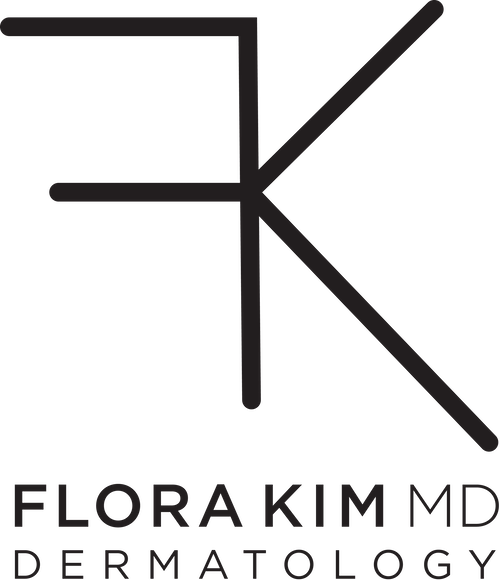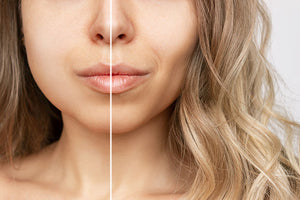Should You Try a Blue Light Skincare Product?

There are a plethora of skincare products that claim to block blue light on the market, but do they work? Research shows that science does not always support their claims. If a recent increase in screen time has left you wondering if you can — or should — shield your skin from blue light, please keep reading on how to best protect your skin.
Blue Light and Our Skin's Exposure to it
Your smartphone, computer, television, and the sun all share one thing in common: They all emit blue light. Blue light is one of several colors in the naturally-occurring visible light spectrum, encompassing between 420 and 490 nanometers. Our biggest source of natural blue light is the sun. However, advancements like fluorescent light bulbs, along with more time spent in front of screens due to COVID, brings blue light into our homes and in front of our faces daily.
How Blue Light Might Damage Your Skin
Blue light from device exposure is a current hot topic in the scientific community, with researchers across the globe attempting to accurately determine how it can impact your skin. As it stands, the majority of blue light research focuses on the effects of visible light as a whole. Additionally, blue light itself is being widely used for medical purposes such as the treatment of acne, psoriasis, atopic dermatitis, neonatal jaundice, and wound healing, as well as for its antimicrobial and antibacterial effects.
However, some studies have shown that extreme exposure to blue light resulted in significant degradation of epidermal antioxidants. In other words, free radicals are likely to be generated after blue light exposure, causing a release of proinflammatory cytokines and MMP (matrix metalloproteinase) expression known to contribute to skin damage. Another Russian study found that visible rays of 400 to 500nm in length can contribute to the mutation of DNA and proteins in the skin. One study even went as far as comparing the damaging effects of blue light to that of long wave ultraviolet A (UVA) rays from the sun.
Other Research to Consider
Before you become too convinced that blue light will harm your skin, it is important to note that individual response to visible light exposure will vary depending on your Fitzpatrick skin type, or how easily your skin sunburns. Also, before you put down your smart devices, you might want to take a look at the September 2020 study in the Journal of the American Academy of Dermatologists, which showed that the use of a high-intensity computer screen for eight hours per day over five days does not worsen melasma.
A Review of Blue Light Skin Care Products
While the verdict is still out on the effects of blue light, I worry that manufacturers are dramatizing the detrimental effect of screen use on your skin to make money. Realistically, there are more blue light-protecting products on the market than there is actual science behind them.
Typical NON-tinted broad-spectrum sunscreens are excellent at protecting from UV radiation, but they are unable to shield against blue light or the entire visible light spectrum. In comparison, TINTED sunscreens contain a blend of iron oxide pigments, including yellow, red, and black, as well as pigmentary titanium dioxides, which can adequately protect against the blue spectrum of visible light.
My Recommendations for Protecting Your Skin
As you can see, not every product that boasts blue light protection will live up to its claims. So, to keep things simple I encourage my patients to be wary of such products and instead apply a tinted mineral sunscreen daily.
To protect my skin from blue light, instead of adding an additional product, I love my:
Sunscreen
This lightweight, 100% mineral sunscreen combines DNA repairsomes and vitamin E for broad-spectrum UVA and UVB protection that remedies existing sun damage. Formulated for daily use, its silky texture lays the perfect foundation for makeup without a white or greasy finish.
Remember not to dismiss the synergistic benefits of pairing topical skincare with oral antioxidant supplements. Your skin is a result of external factors, as well as what you intake orally. In the quest to protect your delicate skin, book a virtual consultation with me to arm yourself with what you need to fight environmental damage.




